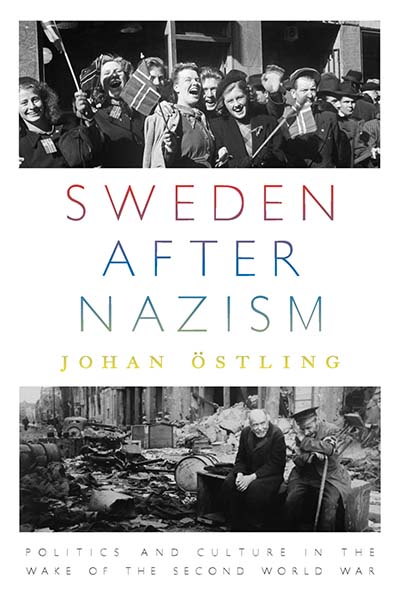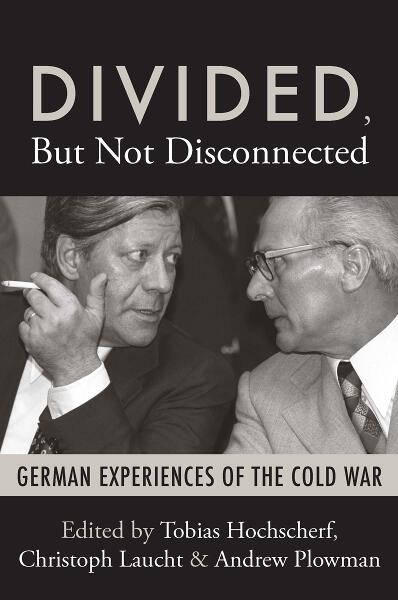
See Related
History JournalsEmail Newsletters
Sign up for our email newsletters to get customized updates on new Berghahn publications.
Sweden after Nazism
Politics and Culture in the Wake of the Second World War
Johan Östling
Translated by Peter Graves
Full Text PDF | Full Text ePUB Made available under a CC BY-NC-ND 4. license with support from Lund University.
360 pages, bibliog., index
ISBN 978-1-78533-142-8 $135.00/£104.00 / Hb / Published (June 2016)
Reviews
“[This book] offers a wealth of detail and a nuanced read of the intersecting political and philosophical currents that characterized postwar Sweden. For those interested in the philosophical impact of Nazism, it is a must read… Essential.” • Choice
“This important work will reward those readers prepared to invest in taking on board what are, at times, new concepts, combined with detailed scrutiny of perhaps unfamiliar aspects of Swedish history and personalities—in order to harvest an abundance of perceptive insights and critical assessments. This book challenges more pedestrian treatments of the Nazi phenomenon and its effects on other countries with sound, first-class, wide-ranging scholarship.” • English Historical Review
“This study makes a generous contribution to our understanding of segments of Sweden’s intellectual and political postwar response to the catastrophe of Nazism and, with it, Europe more generally today.” • The American Historical Review
Description
As a nominally neutral power during the Second World War, Sweden in the early postwar era has received comparatively little attention from historians. Nonetheless, as this definitive study shows, the war—and particularly the specter of Nazism—changed Swedish society profoundly. Prior to 1939, many Swedes shared an unmistakable affinity for German culture, and even after the outbreak of hostilities there remained prominent apologists for the Third Reich. After the Allied victory, however, Swedish intellectuals reframed Nazism as a discredited, distinctively German phenomenon rooted in militarism and Romanticism. Accordingly, Swedes’ self-conception underwent a dramatic reformulation. From this interplay of suppressed traditions and bright dreams for the future, postwar Sweden emerged.
Johan Östling is Associate Professor of History and Pro Futura Scientia Fellow at Lund University, and the Swedish Collegium for Advanced Study (SCAS) in Uppsala. He has received a number of awards, including the Clio Prize and the Nils Klim Prize, and he has been a visiting scholar at the Center for Contemporary History in Potsdam and the Max Planck Institute for the History of Science in Berlin.
Subject: History: 20th Century to Present
Area: Northern Europe
Sweden after Nazism by Johan Östling is available open access under a Creative Commons Attribution-NonCommercial-NoDerivatives 4.0 International License (CC BY-NC-ND 4.0) with support from Lund University.
Full Text PDF | Full Text ePUB
OA ISBN: 978-1-78533-143-5




